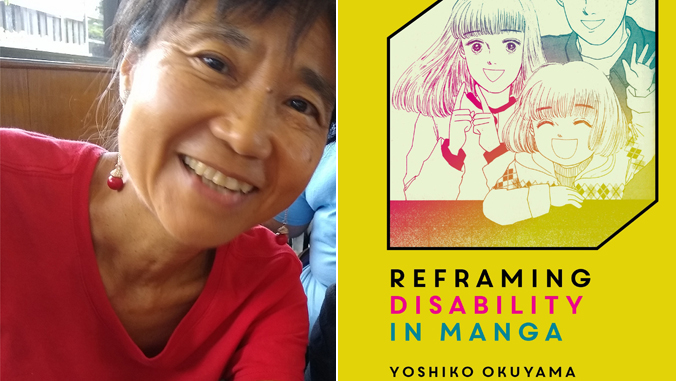
How characters with disabilities are represented in Japanese graphic novels, known as manga, and how disabilities affect people in Japan, are highlighted in a new book by a professor of Japanese studies at the University of Hawaiʻi at Hilo.
Reframing Disability in Manga is Yoshiko Okuyama’s second published book supported by research and grant awards related to disability studies. In the new book, she focuses on several representative conditions of disabilities, including Asperger’s syndrome and visual impairments, as depicted in manga.
“Informed by numerous interviews with manga authors and disability activists, [the book] reveals positive messages of diversity embedded in manga and argues that greater awareness of disability in Japan in the last two decades is due in part to the popularity of these works, the accessibility of the medium, and the authentic stories they tell,” said Okuyama.
The book presents 15 case studies, each centered on a manga or manga series, that showcase how careful depictions of characters as differently abled, rather than disabled or impaired, can influence Japanese cultural constructions of shōgai (disabilities) and promote social change.
Five-year journey
Okuyama says the journey to publish the book took almost five years from incubation of the idea, to contract signing, to the book hitting the market. She credits colleagues at UH Hilo and scholars in the disability field as seeding the idea and giving her the feedback and support needed to sustain the project.
Released in May 2020 by University of Hawaiʻi Press, the book is already adopted for courses on Asian studies, including a summer course taught by Cornell University Assistant Professor Andrew Campana.
Reframing disability in manga
Okuyama says she was motivated to research disability in Japan due to her own experience of caring for a disabled family member. Her early-life dream was to become a professional comic artist, or mangaka. Although she chose the life of an educator instead, the professor has been teaching a course on manga (JPST382) for more than 10 years at UH Hilo.
Reframing Disability in Manga analyzes popular Japanese manga published from the 1990s to the present that portray the everyday lives of adults and children with disabilities in an ableist society. It focuses on five representative conditions currently classified as shōgai (disabilities) in Japan—deafness, blindness, mobility impairments, autism and gender identity disorder—and explores the complexities and sociocultural issues surrounding each.
—By Susan Enright, a public information specialist for the Office of the Chancellor and editor of UH Hilo Stories

